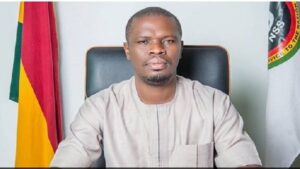
Finally, Ghana is beginning to take proper advantage of its most precious natural mineral resource – gold – after which it was originally named before adopting its present name as a modern independent nation state.
Ghana returned to the global gold resource map back in the 1980s when, as part of its wider economic liberalization efforts, the then government enacted a Mining Code designed to attract the international gold mining industry, and which proved so successful that it became the template for other African countries endowed with the metal, and seeking international investment and expertise.
But 40 years later, Ghana has failed to make any meaningful progress towards actually owning the gold it has been blessed with, despite being universally acknowledged as one of the brightest gold investment destinations in the world. Rather, the resource is still under the control of foreign companies who explore for and mine it on a large scale basis. Even the illegal small scale mining industry which is destroying the country’s environment is largely in the hands of foreigners. Little wonder then that until now gold trading has been dominated by foreigners too.
Meanwhile, the communities that host gold exploration and mining activities remain impoverished, many of them lacking basic socio-economic infrastructure and services even as their farmlands are decimated by environmentally unfriendly mining methods.
At long last though, change is coming as the newly installed government is adopting a belated but most welcome stance of gold resource nationalism, with a view to bringing the benefits of the nation’s gold resources to its populace rather than just the large and medium sized international gold mining companies, smaller prospecting adventurers and the outright criminals who are destroying Ghana’s environment through their illegal mining activities.
At the centre of the new nationalistic agenda for Ghana’s gold industry is the recently formed Gold Board (more commonly known simply as Goldbod) established by the new government to take over, regularize and regulate legal small scale mining and gold trading in Ghana for the benefit of Ghanaians and their country.
To this end the Board will, among other things : promote the marketing of the country’s gold resources; institute policies and programmes to enhance local gold production and maximize the national benefit across the entire value chain of the gold resources of Ghana; provide support to small scale miners and mining communities; support environmentally sustainable and responsible mining practices; and license Ghanaians to carry out small scale gold trading in Ghana.
In effect this means Goldbod will take back Ghana’s small scale mining sector from illegal miners, foreign gold traders and smugglers who deprive the country of direly needed foreign exchange from its own natural resources.
Another key prong in the new strategy is to take back mining concessions from the large foreign gold mining companies who got them on very generous terms but who no longer show a commitment to running them for their, and Ghana’s maximum benefit. Government’s refusal to renew the Damang mine’s concession agreement with Goldfields beyond a one year transition period is not just an exercise of Ghana’s right to use its own natural resources for its own good – it is a warning shot to all the other foreign mining companies operating in Ghana that any of them that fail to show proper commitment to their host country will be asked to pack up and go
All this amounts to a reset of Ghana’s relationship with its gold mining industry; and one that is long overdue.



